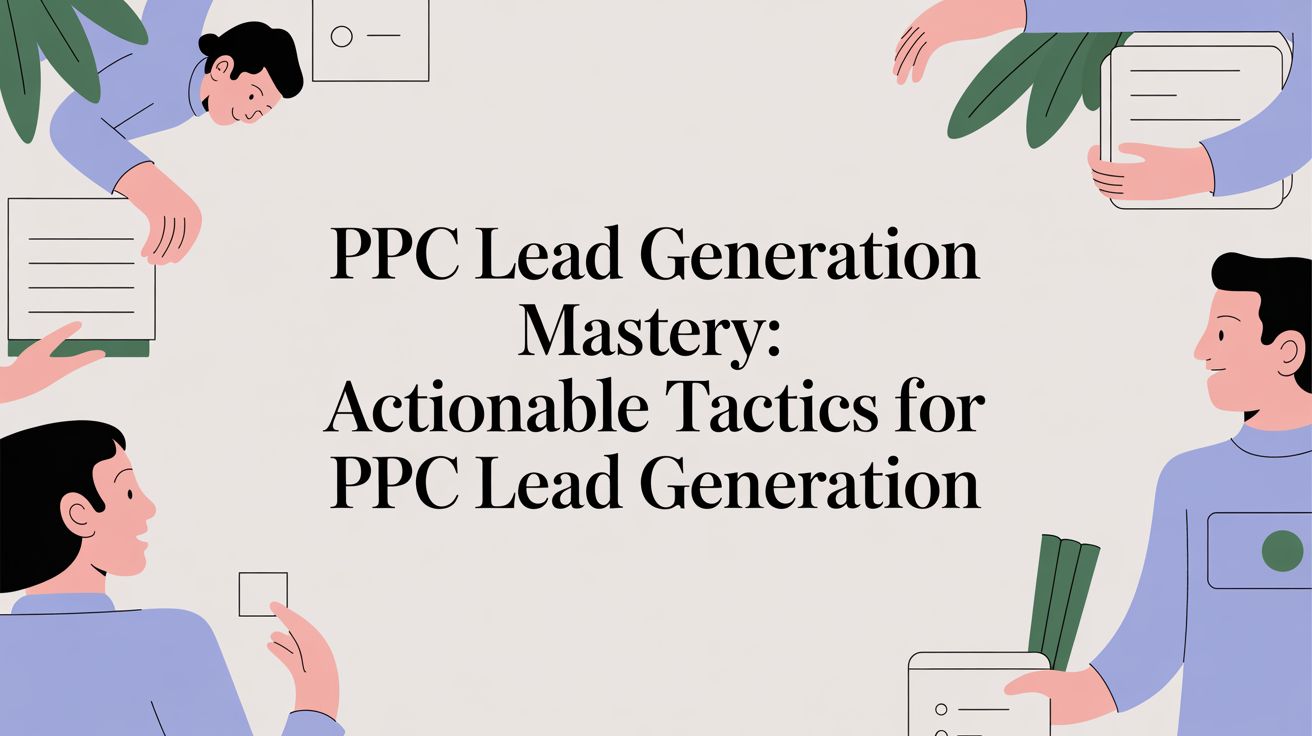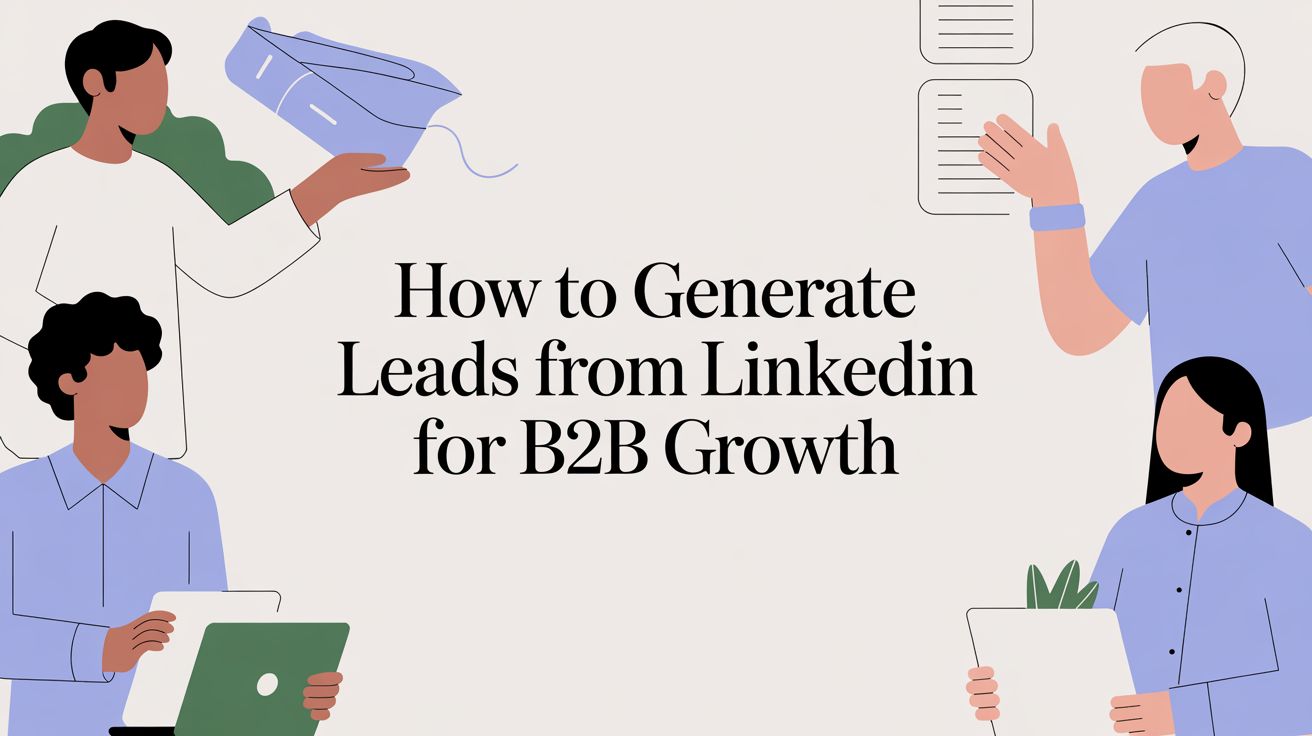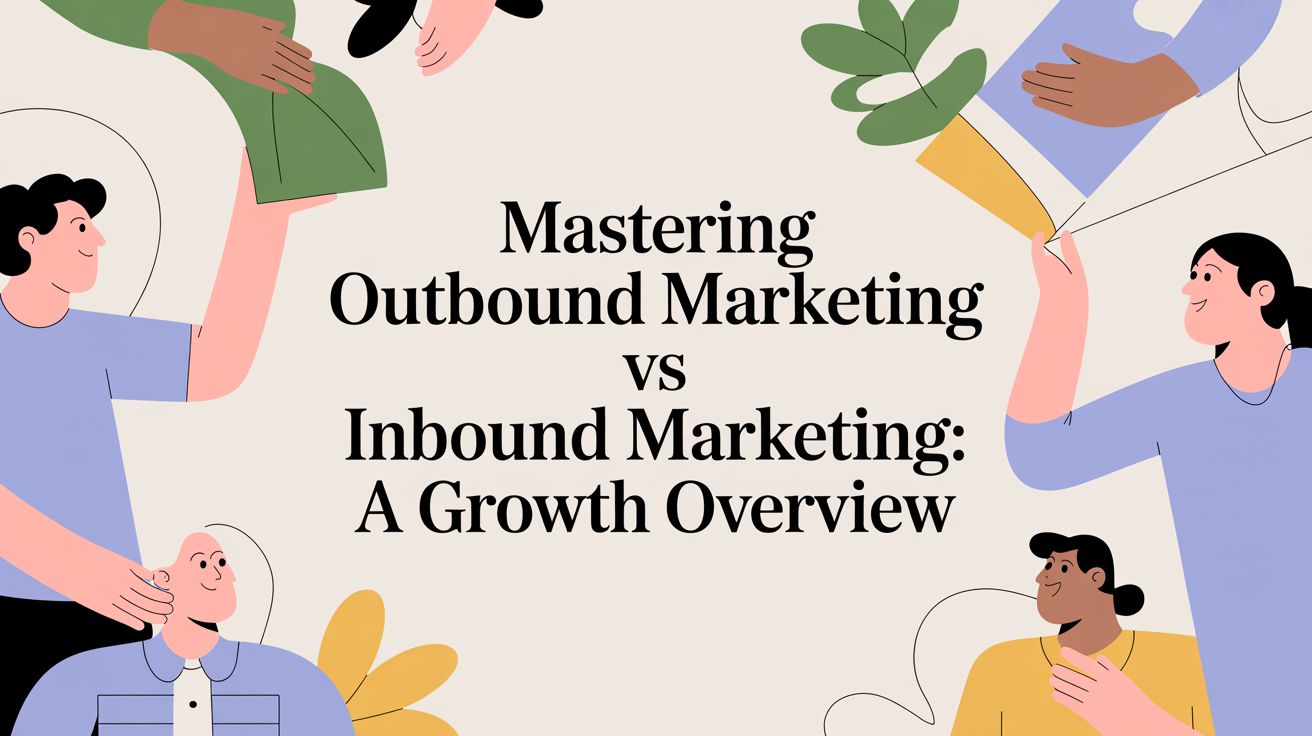Weekly marketing wisdom you can read in 5 minutes, for free. Add remarkable ideas and insights to your inbox, once a week, by subscribing to our newsletter.

How To Conquer The B2B Marketplace With Digital Marketing
Introduction
In the ever-evolving landscape of business, the B2B marketplace has emerged as a critical arena for companies looking to expand their reach and drive growth. Unlike B2C markets, where businesses sell directly to consumers, B2B (business-to-business) marketplaces involve transactions between companies. This dynamic sector is rapidly growing, with digital marketing playing a pivotal role in enabling businesses to navigate and conquer the B2B marketplace.
This article explores how businesses can effectively leverage digital marketing to establish a strong presence in the B2B marketplace. From understanding the intricacies of B2B markets to building a robust digital marketing strategy, this guide will provide comprehensive insights and actionable steps to help your business succeed.
Table of contents:
Understanding the B2B Marketplace
What is a B2B Marketplace?
A B2B marketplace is an online platform where businesses can buy and sell products or services to other businesses. These marketplaces facilitate transactions between companies, often offering a wide range of goods and services from multiple suppliers. Examples of well-known B2B marketplaces include Alibaba, Amazon Business, and ThomasNet.
The key difference between B2B and B2C (business-to-consumer) marketplaces lies in the nature of the transactions. B2B transactions are typically larger, more complex, and involve longer sales cycles compared to B2C transactions. Additionally, B2B purchases often require approval from multiple stakeholders within an organisation, making the decision-making process more intricate.
Trends and Growth in the B2B Marketplace
The B2B marketplace is experiencing significant growth, driven by the increasing adoption of digital technologies and the demand for more efficient procurement processes. Businesses are moving towards online platforms to streamline operations, reduce costs, and access a broader range of suppliers and products. This trend is expected to continue, with the global B2B e-commerce market projected to reach $20.9 trillion by 2027.
The Role of Digital Marketing in The B2B Marketplace
In the digital age, marketing strategies have evolved beyond traditional methods. Digital marketing is essential for B2B companies to reach their target audience, build brand awareness, and generate leads. By utilising various digital channels, businesses can engage with potential clients, showcase their products or services, and establish credibility in the marketplace.
B2B marketing strategies differ significantly from B2C strategies due to the nature of the audience. B2B marketing focuses on building relationships, educating potential clients, and providing solutions to business problems. Content marketing, SEO, and email marketing are particularly effective in B2B, where the emphasis is on delivering value and fostering long-term partnerships rather than simply driving immediate sales.
Digital Transformation in B2B Marketplaces
Digital transformation has revolutionised the way B2B businesses operate. From automated marketing tools to advanced data analytics, technology enables companies to better understand their customers, optimise marketing campaigns, and improve the overall buying experience. Embracing digital transformation is crucial for businesses looking to stay competitive in the B2B marketplace.
Building a Robust Digital Marketing Strategy for the B2B Marketplace
Setting Clear Goals and Objectives
Setting clear goals is the foundation of any successful marketing strategy. For B2B businesses, these goals should align with overall business objectives and be specific, measurable, achievable, relevant, and time-bound (SMART). Whether the aim is to increase brand awareness, generate leads, or drive sales, clearly defined goals will guide your marketing efforts and ensure that resources are used effectively.
Marketing goals should not exist in isolation. They need to be closely aligned with the broader business objectives to ensure that marketing efforts contribute directly to the company’s success. For example, if a business aims to expand into new markets, the marketing strategy should focus on increasing brand visibility and establishing credibility in those regions.
Understanding Your Target Audience In B2B Marketplace
A deep understanding of your target audience is crucial in B2B marketing. Creating detailed buyer personas—fictional representations of your ideal customers—can help you tailor your marketing efforts to meet their specific needs and preferences. These personas should include demographic information, job roles, pain points, and decision-making processes.
In the B2B marketplace, buying decisions are often influenced by multiple factors, including budget constraints, business needs, and stakeholder opinions. Understanding the buyer’s journey—from awareness to consideration and decision—enables businesses to deliver the right message at each stage and address any concerns that may arise.
Segmentation Strategies in B2B Marketing
Segmentation involves dividing your target audience into smaller groups based on shared characteristics. This allows for more personalised and effective marketing campaigns. In B2B marketing, segmentation can be based on factors such as industry, company size, or purchase behaviour. By targeting specific segments, businesses can create more relevant content and offers, increasing the likelihood of conversion.
Crafting a Value Proposition
A strong value proposition is essential for standing out in the crowded B2B marketplace. Your unique selling proposition (USP) should clearly communicate what sets your business apart from competitors and why customers should choose your products or services. This could be based on factors such as product quality, customer service, or innovative solutions.
In B2B marketing, it’s important to communicate the value your business offers in a way that resonates with your target audience. This involves highlighting how your products or services can solve specific business problems or improve efficiency. Case studies, testimonials, and white papers are effective tools for demonstrating value and building trust with potential clients.
Case Studies of Successful Value Propositions
Looking at successful examples from industry leaders can provide inspiration for crafting your own value proposition. For instance, Salesforce’s value proposition focuses on helping businesses grow by providing an integrated CRM platform, which is communicated through compelling case studies and customer success stories.
Essential Digital Marketing Channels For The B2B Marketplace
Content Marketing
Content marketing is a cornerstone of B2B digital marketing. By creating and distributing valuable, relevant content, businesses can attract and engage their target audience. Content marketing helps establish thought leadership, build trust, and nurture leads throughout the buyer’s journey.
B2B audiences are typically looking for content that is informative, educational, and actionable. White papers, eBooks, case studies, and industry reports are highly effective in engaging B2B buyers. Blogs and articles that address common industry challenges and offer solutions can also drive traffic and generate leads.
Content Distribution Strategies
Creating great content is only half the battle; distributing it effectively is just as important. B2B businesses should leverage multiple channels, including social media, email newsletters, and industry publications, to ensure their content reaches the right audience. Paid promotion, such as sponsored content and PPC advertising, can also help amplify reach.
Search Engine Optimisation (SEO)
SEO is vital for improving the visibility of your business in search engine results. Keyword research is the first step in any successful SEO strategy. For B2B marketplaces, focus on long-tail keywords that are specific to your industry and target audience. Tools like Google Keyword Planner and SEMrush can help identify high-value keywords.
On-Page and Off-Page SEO Strategies
On-page SEO involves optimising elements on your website, such as meta tags, headings, and content, to improve search rankings. Off-page SEO, on the other hand, focuses on building backlinks from reputable sources to enhance domain authority. Both on-page and off-page SEO are crucial for driving organic traffic to your site.
For B2B companies targeting specific geographic regions, local SEO is essential. This involves optimising your online presence for local search queries, such as “B2B supplier in London.” Claiming and optimising your Google My Business listing, as well as generating positive reviews, can improve your local search visibility.
Email Marketing
Email marketing remains one of the most effective channels for B2B marketing. To craft compelling email campaigns, focus on delivering valuable content, such as industry insights, product updates, and personalised offers. Segmenting your email list based on factors like industry or company size allows for more targeted messaging.
Personalisation is key to successful email marketing. Use data to tailor your emails to the recipient’s interests and needs, increasing the likelihood of engagement. Marketing automation tools, such as HubSpot or Mailchimp, can help streamline this process by automating email workflows and trigger-based campaigns.
Measuring Email Campaign Success
Tracking the performance of your email campaigns is crucial for ongoing optimisation. Key metrics to monitor include open rates, click-through rates, and conversion rates. A/B testing different subject lines, email designs, and calls-to-action can help refine your strategy and improve results over time.
Social Media Marketing
Social media is a powerful tool for B2B marketing, but it’s important to choose the right platforms. LinkedIn is the most popular social network for B2B marketers, thanks to its professional user base and targeted advertising options. Twitter and Facebook can also be effective for sharing content and engaging with industry communities.
To maximise the impact of your social media efforts, focus on building relationships and providing value. Share industry news, thought leadership content, and customer success stories to engage your audience. Regularly interacting with followers, responding to comments, and participating in industry discussions can help build your brand’s presence.
Paid Social Advertising Strategies
Paid social media advertising can significantly extend your reach and drive targeted traffic to your website. LinkedIn Ads, for example, allows you to target specific job titles, industries, and company sizes, making it ideal for B2B campaigns. Experimenting with different ad formats, such as sponsored posts or carousel ads, can help you find what resonates best with your audience.
Pay-Per-Click (PPC) Advertising
PPC advertising is an effective way to generate leads quickly, especially in competitive industries. By bidding on relevant keywords, your ads can appear at the top of search engine results, driving highly targeted traffic to your website. PPC campaigns can be tailored to specific goals, such as lead generation or brand awareness.
To get the most out of your PPC campaigns, focus on continuous optimisation. This includes refining your keyword strategy, improving ad copy, and adjusting bids based on performance data. It’s also important to create dedicated landing pages that are optimised for conversion, ensuring that clicks turn into leads.
Integration of PPC with Other Marketing Channels
PPC should not operate in isolation. Integrating PPC with other marketing channels, such as content marketing and email marketing, can create a more cohesive strategy. For example, retargeting campaigns can be used to re-engage visitors who have interacted with your content but have not yet converted.
Influencer and Partner Marketing
Influencer marketing is not just for B2C brands. In the B2B space, industry influencers—such as thought leaders, bloggers, or experts—can help amplify your message and build credibility. Collaborating with influencers to create content, host webinars, or promote your products can extend your reach and influence within your industry.
Strategic partnerships are a powerful way to grow your business in the B2B marketplace. By partnering with complementary businesses, you can expand your offering, reach new audiences, and enhance your credibility. Successful partnerships often involve co-marketing initiatives, joint ventures, or affiliate marketing programmes.
Case Studies of Successful B2B Influencer Campaigns
Examining successful B2B influencer campaigns can provide valuable insights. For instance, Adobe’s collaboration with industry influencers to create and share content around digital transformation has been highly effective in positioning the brand as a leader in its field.
Leveraging Technology and Automation in The B2B Marketplace
Marketing Automation Tools
Marketing automation tools are essential for streamlining your marketing efforts. Platforms like HubSpot, Marketo, and Pardot offer a range of features, including lead nurturing, email marketing, and analytics. These tools can help you manage campaigns more efficiently, personalise communications, and track performance across channels.
Automation not only saves time but also improves the return on investment (ROI) of your marketing campaigns. By automating repetitive tasks, such as email follow-ups or social media posting, you can focus on higher-value activities. Automation also enables more consistent and timely communication with leads, increasing the likelihood of conversion.
Customer Relationship Management (CRM) Systems In The B2B Marketplace
A Customer Relationship Management (CRM) system is a crucial tool for managing interactions with clients and prospects. CRM systems, like Salesforce or Zoho CRM, provide a centralised database of customer information, enabling better management of sales pipelines, customer service, and marketing activities.
Integrating your CRM with your marketing efforts ensures that all customer data is up-to-date and accessible across your organisation. This integration allows for more personalised marketing, as well as better tracking of leads as they move through the sales funnel. It also facilitates collaboration between sales and marketing teams, leading to more effective campaigns.
Data Analytics and AI in B2B Marketing
Data analytics is essential for making informed marketing decisions. By analysing data from various sources, businesses can gain insights into customer behaviour, campaign performance, and market trends. This data-driven approach allows for more accurate targeting, better resource allocation, and improved campaign outcomes.
Artificial intelligence (AI) is transforming B2B marketing by enabling predictive analytics. AI-powered tools can analyse historical data to predict future trends, customer behaviour, and the likelihood of conversion. This allows businesses to optimise their marketing strategies and allocate resources more effectively.
Examples of AI-Driven Marketing Success
AI-driven marketing has proven successful in various B2B contexts. For example, IBM uses AI to personalise its marketing efforts, resulting in higher engagement and conversion rates. Similarly, AI tools that analyse customer interactions can help businesses identify the best times to send emails, improving open and click-through rates.
Measuring and Optimising Your Digital Marketing Efforts In The B2B Marketplace
Key Performance Indicators (KPIs) for B2B Marketing
Tracking the right key performance indicators (KPIs) is crucial for assessing the success of your digital marketing efforts. Essential KPIs for B2B marketing include lead generation metrics, such as the number of qualified leads, cost per lead, and lead-to-customer conversion rate. Other important KPIs include website traffic, email engagement, and ROI.
To effectively track KPIs, it’s important to set up robust analytics and reporting systems. Google Analytics, for instance, provides detailed insights into website performance, user behaviour, and traffic sources. Regular reporting allows you to monitor progress towards your goals and make data-driven decisions to optimise your strategy.
A/B Testing and Experimentation In The B2B Marketplace
A/B testing, also known as split testing, is a powerful technique for optimising your marketing efforts. By testing different versions of a webpage, email, or ad, you can determine which performs better and refine your strategy accordingly. A/B testing helps identify what resonates with your audience and improves the overall effectiveness of your campaigns.
To conduct an A/B test, start by selecting a variable to test, such as a headline, call-to-action, or image. Create two versions—A and B—with only this variable changed, and split your audience equally between the two versions. Monitor the performance of each variant and use the results to inform your future marketing decisions.
After conducting an A/B test, analyse the results to determine which version performed better. Look at metrics such as conversion rates, click-through rates, or engagement levels. Based on these insights, implement the winning version across your campaigns and consider testing other variables to further optimise your strategy.
Continuous Improvement and Adaptation
The digital marketing landscape is constantly changing, making it essential to continuously optimise your strategy. Regularly review your marketing efforts to identify areas for improvement, whether it’s refining your content, updating your SEO strategy, or experimenting with new channels. A commitment to ongoing optimisation ensures that your business remains competitive in the B2B marketplace.
Staying informed about the latest industry trends and innovations is crucial for maintaining a competitive edge. Attend industry events, follow thought leaders, and subscribe to relevant publications to stay up-to-date with new developments. By proactively adapting to changes in the marketplace, your business can seize new opportunities and stay ahead of the competition.
The B2B marketplace is dynamic, with new technologies, regulations, and customer preferences emerging regularly. Adapting to these changes requires flexibility and a willingness to innovate. Businesses that are quick to adopt new technologies and adjust their strategies to meet evolving customer needs are more likely to succeed in the long term.
Challenges and Solutions in B2B Digital Marketing
Common Challenges in B2B Digital Marketing
One of the main challenges in B2B digital marketing is the length of the sales cycle. Unlike B2C transactions, B2B purchases often involve multiple decision-makers and a lengthy evaluation process. This can make it difficult to maintain engagement and momentum throughout the buyer’s journey.
B2B marketers often face budget constraints and pressure to demonstrate a high return on investment (ROI). Allocating resources effectively and choosing the right channels to invest in can be challenging, especially when there is a need to balance short-term results with long-term growth.
Solutions and Best Practices
Strategic planning is essential for overcoming the challenges of B2B digital marketing. By setting clear objectives, understanding your audience, and choosing the right channels, you can create a marketing plan that addresses your business’s unique needs. Regularly reviewing and adjusting your strategy ensures that you stay on track and meet your goals.
Customer feedback is invaluable for refining your marketing efforts. Regularly solicit feedback from clients to understand their needs, preferences, and pain points. Use this information to tailor your marketing messages and improve your products or services. Additionally, analysing customer behaviour data can provide insights into what is working and where there are opportunities for improvement.
Best Practices from Industry Leaders
Learning from industry leaders can provide valuable insights and inspiration for your own marketing efforts. Case studies, webinars, and industry reports often highlight best practices and innovative approaches that have proven successful. By applying these lessons to your own strategy, you can avoid common pitfalls and accelerate your success in the B2B marketplace.
Summary
Conquering the B2B marketplace with digital marketing requires a deep understanding of your audience, a well-crafted strategy, and the effective use of digital tools and channels. By setting clear goals, leveraging technology, and continuously optimising your efforts, your business can establish a strong presence in the B2B marketplace and drive sustainable growth.
As the digital landscape continues to evolve, staying informed about the latest trends and best practices will be crucial for maintaining a competitive edge. By embracing innovation and adapting to changes in the market, your business can thrive in the complex and dynamic world of B2B commerce.
If you’re ready to take your B2B marketing strategy to the next level, request a proposal today to learn how we can help you achieve your business goals.




